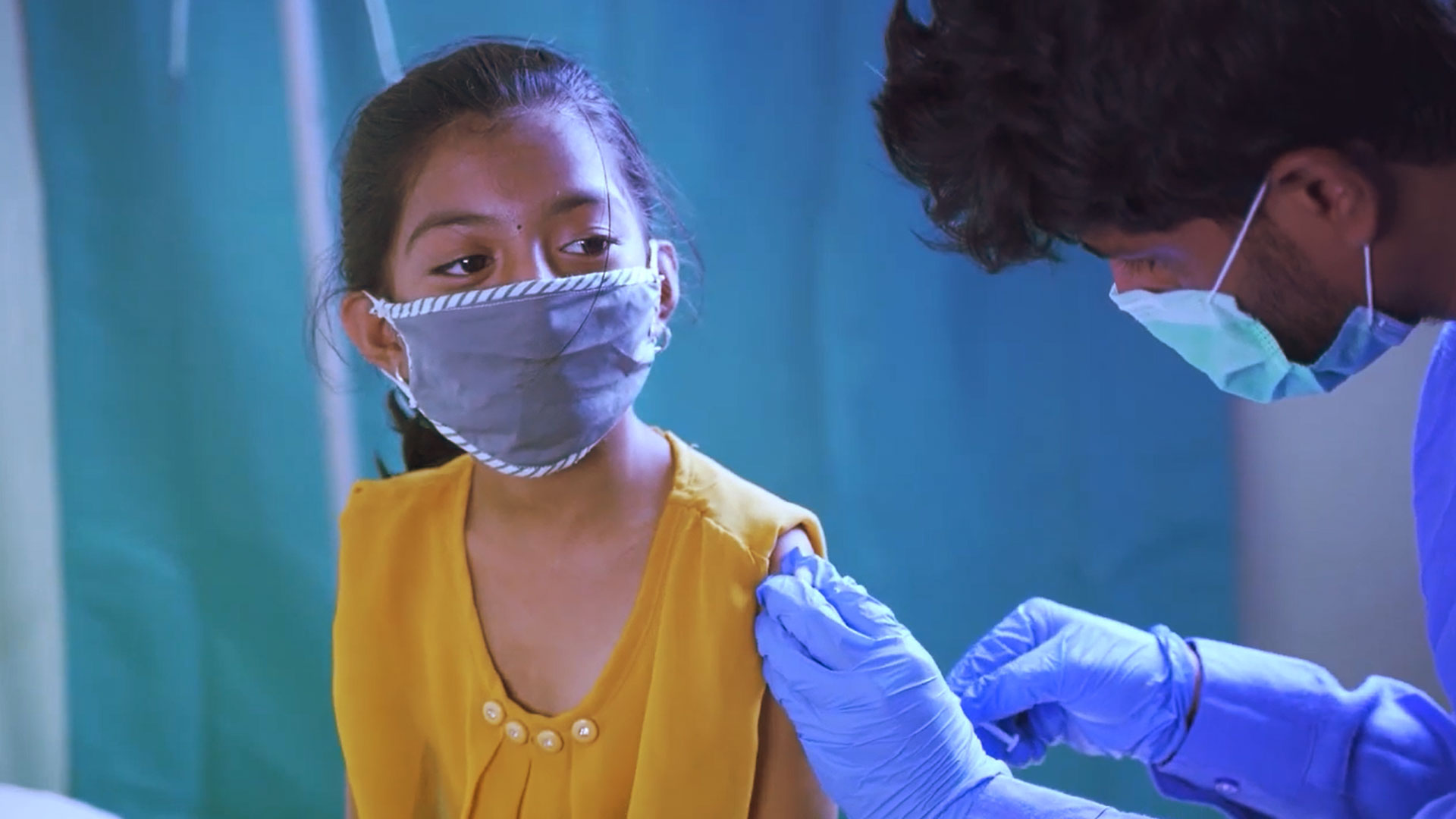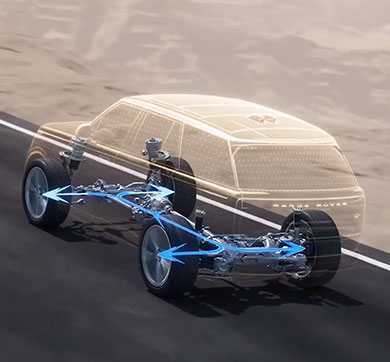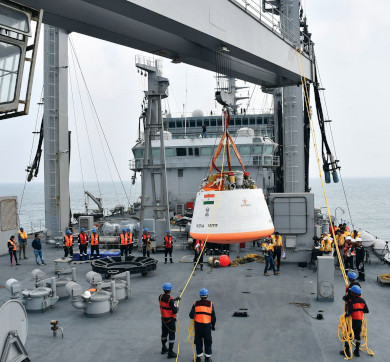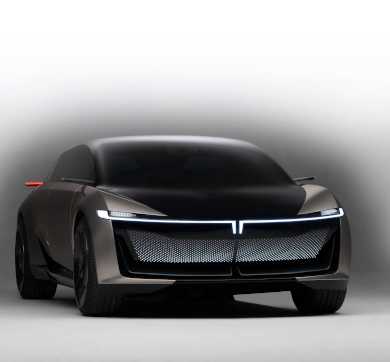February 2025 | 1146 words | 4-minute read
In a technology-first future, India needs a transformation of vision to solve the big problems at its scale. We need our scientists driving deep, fundamental research and innovators pushing beyond the margins of new technology, said N Chandrasekaran, Chairman, Tata Sons, in his opening remarks at the 2024 Tata Transformation Prize ceremony, held in Mumbai in December.
Initiated in 2022 by Tata Sons, in collaboration with The New York Academy of Sciences (NYAS), the annual prize is an example of the group’s pioneering and continuing efforts towards nation-building. It was designed to recognise and support high-risk, high-reward research breakthroughs in food security, healthcare and sustainability by scientists in labs across India. The prize aims to support the deployment of these solutions at scale, in service of the country’s needs.
“Now, more than ever, we must champion science-based solutions to solve global challenges and seek to ensure the technological progress helps the many and not just the few,” said Dr Nicholas B Dirks, President and Chief Executive Officer, NYAS, at the event. “The prize addresses India’s critical societal needs by honouring India’s most outstanding scientists who genuinely want to make a difference while supporting India’s advancement as a world leader.”
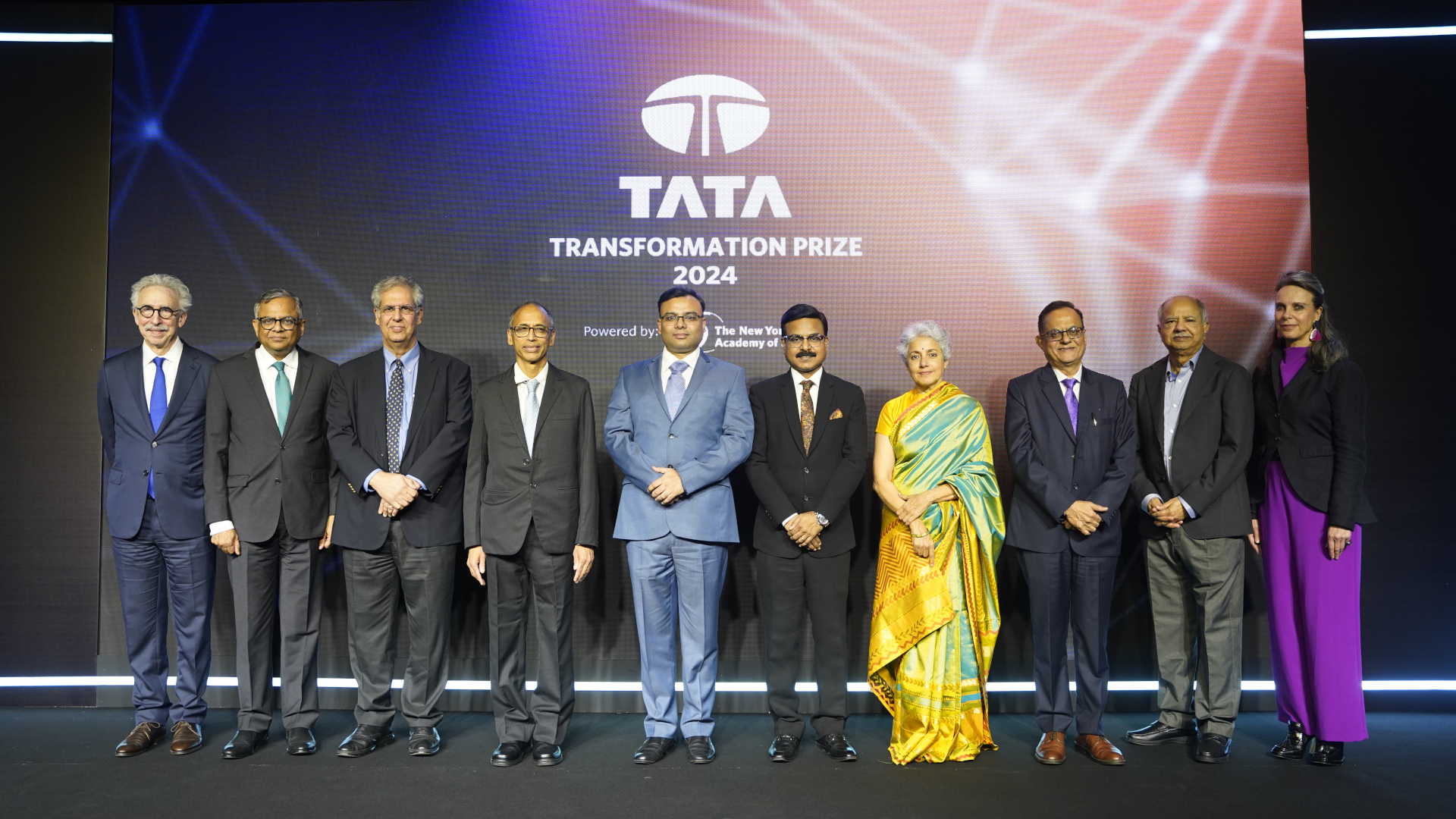
This year, there were 169 entries from 18 states, showcasing the breadth of innovation taking place. The jury, comprising eminent scientists, clinicians, technologists and engineers from world-renowned organisations and academic institutions across five continents, evaluated entries based on the quality, vision and feasibility of the proposed innovation. Winners were awarded Rs 2 crore ($240,000) each and a Tata Transformation Prize medal.
Here’s a look at the three winners and their groundbreaking projects.
Healthcare winner
Dr Raghavan Varadarajan, Professor, Indian Institute of Science, Bengaluru
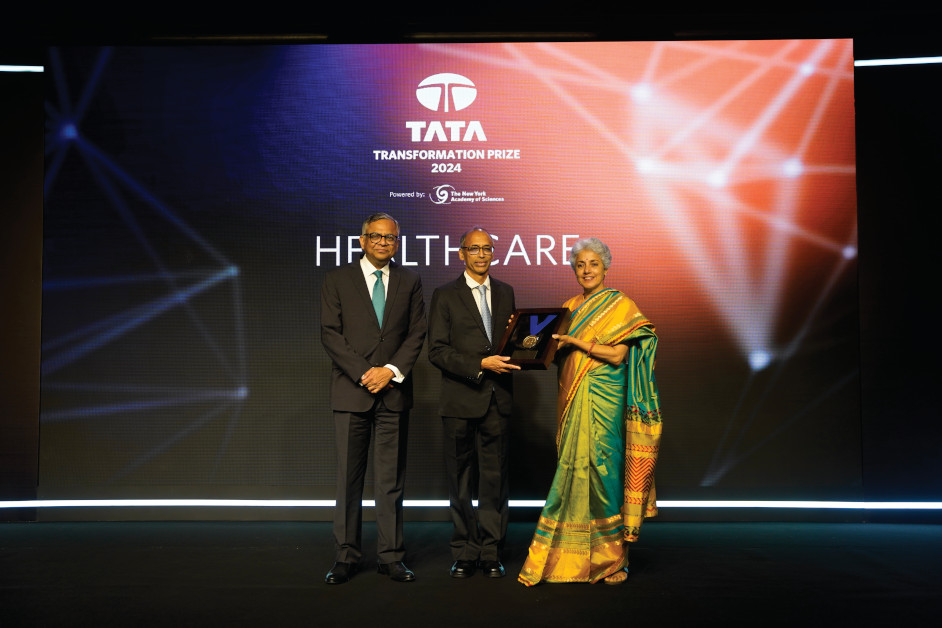
Making respiratory vaccines affordable
Dr Varadarajan was recognised for his efforts towards the development of an efficacious and affordable vaccine for respiratory syncytial virus (RSV), a leading cause of severe respiratory infection that primarily affects young children and the elderly. Globally, the disease claims 1.2 lakh+ lives of children under five years, every year — most are less than six months old.
Though RSV vaccines have recently become available, for ~Rs 5,000 ($300) a dose, they are prohibitively expensive for those who need them the most (~97% of RSV deaths occur in developing countries). Dr Varadarajan’s lab will build on its earlier efforts, which include developing the world’s first thermos-stable Covid-19 vaccine, to make an RSV vaccine under ~Rs 1,700 ($20) that will be ready for clinical development within three years.
The lab is using innovative methodology based on deep mutational scanning to engineer ultra-stable proteins. This enhances the stability of the F protein — a moving, shape-shifting protein used by RSV to enter cells — thereby circumventing its dangerous properties, while also sharply reducing manufacturing costs.
“India welcomes 25 million newborns every year,” said Dr Varadarajan. “If we could offer this vaccine to pregnant women and include it in the national immunisation programme, we could save around 20,000 precious young lives in India alone… The vaccine will also benefit the elderly and those with other health conditions. Initiatives like the Tata Transformation Prize enable a scientist to tackle major national problems. We must be able to upscale and refine these solutions, so they become available to people in our country and worldwide.”
Food security winner
Dr C Anandharamakrishnan, CSIR – National Institute for Interdisciplinary Science and Technology, Thiruvananthapuram
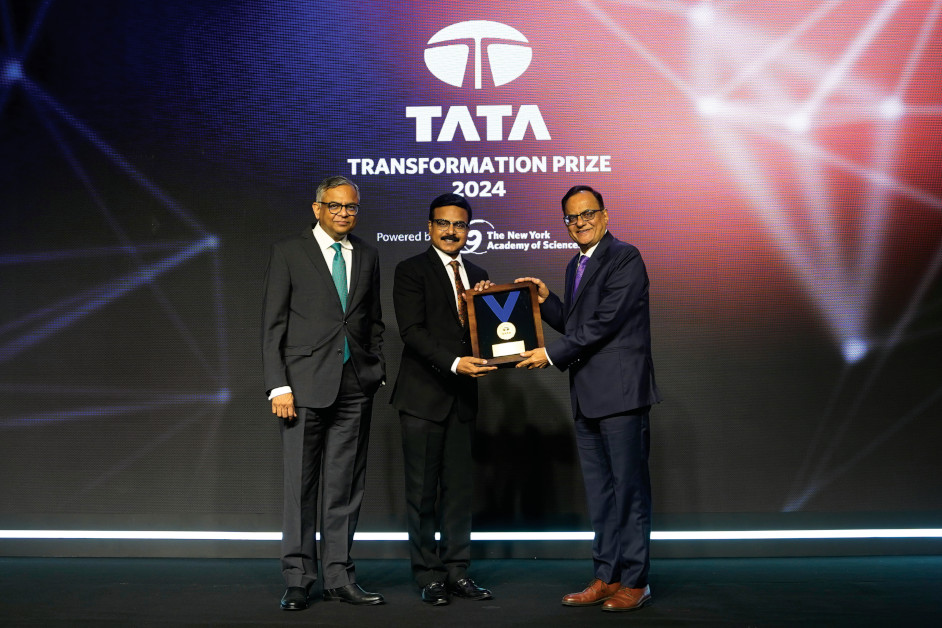
Developing a multi-nutrient delivery system
“Only a healthier nation can be a stronger nation,” says Dr Anandharamakrishnan, who has pioneered a variety of rice fortified with multiple essential nutrients and with a low glycaemic index (GI) to simultaneously address micronutrient malnutrition and blood sugar management for diabetics. The advancement is critical for India, where one-third of the population suffers from malnutrition, and is home to the second-largest population of diabetics in the world (with 13.4 crore expected to be diabetic by 2045).
Dr Anandharamakrishnan’s lab was recognised for designing and developing a multi-nutrient delivery system in fortified rice, which is a staple for ~65% Indians, making it a cost-effective and sustainable way to address micronutrient deficiencies. Using hot extrusion tech and 3D printing, his team has fortified rice kernels with iron, folic acid and Vitamin B12. The lab has also employed a multi-nozzle system for production of micronutrient premixes to develop dual functional fortified rice kernels with low GI index. Having developed Asia’s first engineered artificial gastrointestinal system, the team uses it to analyse nutrient release during digestion to ensure the rice is optimised to provide a vital nutritional boost.
“The Tata Transformation Prize will help to upscale this process into large-scale production in order to reach a larger population,” says Dr Anandharamakrishnan. “Any young scientist coming into the research field has to see how they can contribute to national development. We have to take a high-risk, high-objective project to solve our country’s needs.”
Sustainability winner
Dr Amartya Mukhopadhyay, Professor, Indian Institute of Technology Bombay
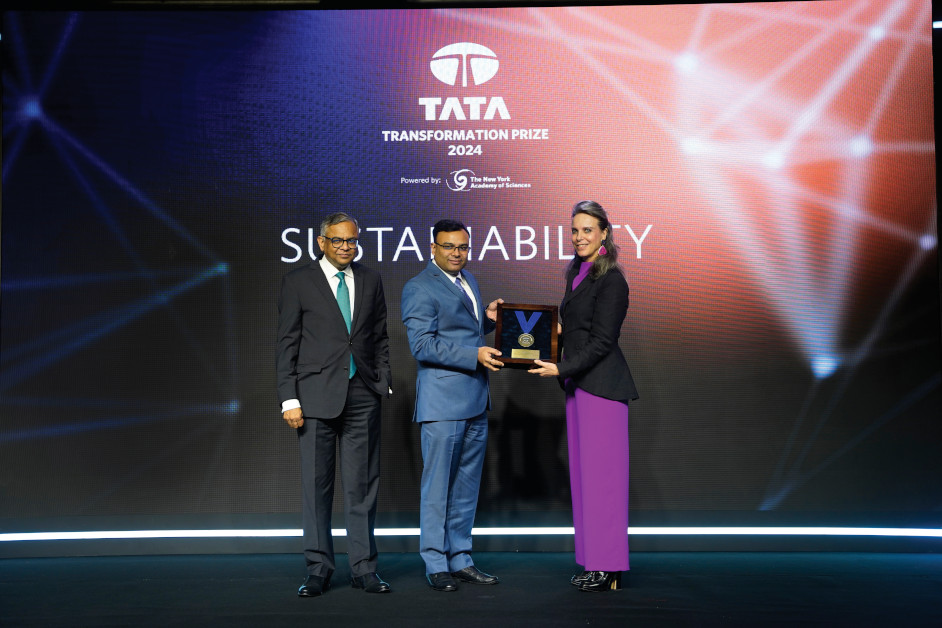
Developing greener batteries
Dr Mukhopadhyay won the prize for his work in advancing Sodium (Na)-ion batteries, which are 30% cheaper than Lithium (Li)-ion batteries and are made without toxic, polluting chemicals. This is extremely significant in a country like India that still struggles with blackouts and unreliability in the grid, as well as multiple cities that grapple with critical pollution levels on a daily basis.
Na-ion batteries offer a promising alternative to Li-ion technology. They can be safely operated over a wide range of temperatures, they charge faster, are less expensive and store the same amount of energy — plus, India has vast reserves of the required materials.
However, cathode materials in these batteries are susceptible to water-induced damage (even from humidity) and require toxic chemicals for electrode processing. Dr Mukhopadhyay and his team have innovated to develop sodium-transition metal oxide cathodes and alloy-based anodes, which are highly air- and water-stable, and thus safer to store. The solution reduces production costs and environmental impact, and will foster improvements in sustainable energy storage, electric vehicles and large-scale industrial development.
“Sodium-ion battery technology will help India become self-reliant towards developing good battery technologies for energy storage, electric vehicles and as well as large-scale industrial development, [by] using a sustainable method, [by] not using toxic chemicals and not leading to excessive greenhouse gas emissions,” says Dr Mukhopadhyay. “The prize will give a lot of momentum to the developments in my laboratory, translating them towards a real-world solution.”
—Anuradha Anupkumar




